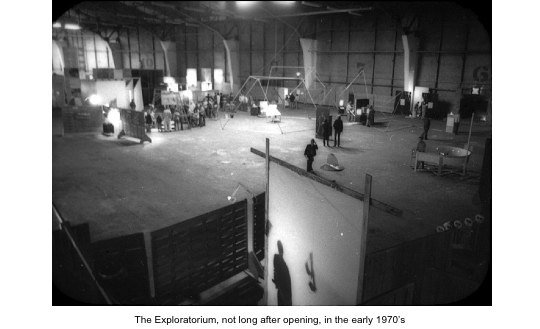 | |||
| differs from person to person. But once established, they seem very absolute, for the contradictory evidence produces no sense of confusion or doubt about the conclusion. It would be interesting to discover whether art enables people to rearrange their own perceptual hierarchies. Hierarchies must enter into all kinds of judgments and may account for the stubbornness of those that involve skin color or some particular foreign accent. Scientists pride themselves on being immune, at least in a narrow domain, to the illusion producing compulsion of such hierarchies. In fact, a frequently avowed objective of science teaching stems from this pride, and it would indeed be fine if demonstrations on the mechanisms of perception suggested to our visitors that conclusions about “the state of the external world” must be consistent with all available bits of evidence. Although the Exploratorium does not consciously glorify the achievements of people, it is impossible to come away without some sense of awe at the subtleties, complexities, and the almost unbelievable reliability of | sensory information and processing. One also frequently comes away with a new awareness that causes one to stare, squint, close one’s eye, or cock one’s head, in a word, to experience everyday phenomena. In the context of the title of this panel, I should mention the word “relevance,” because so many students have complained about the lack of it in their education. I must confess that I am confused about the meaning of the word in this connection. There is very little that one can learn that is not relevant to something, but I do not think that the students mean “relevant to something.” My guess as to their meaning is that something can appear relevant only when the experience of the present moment in some way forms a link between experience of the past and those of a conceivable future. In this sense, and also because it is manifestly noncoercive, the Exploratorium. has responded to the criticisms and the tenor of the times. | ||